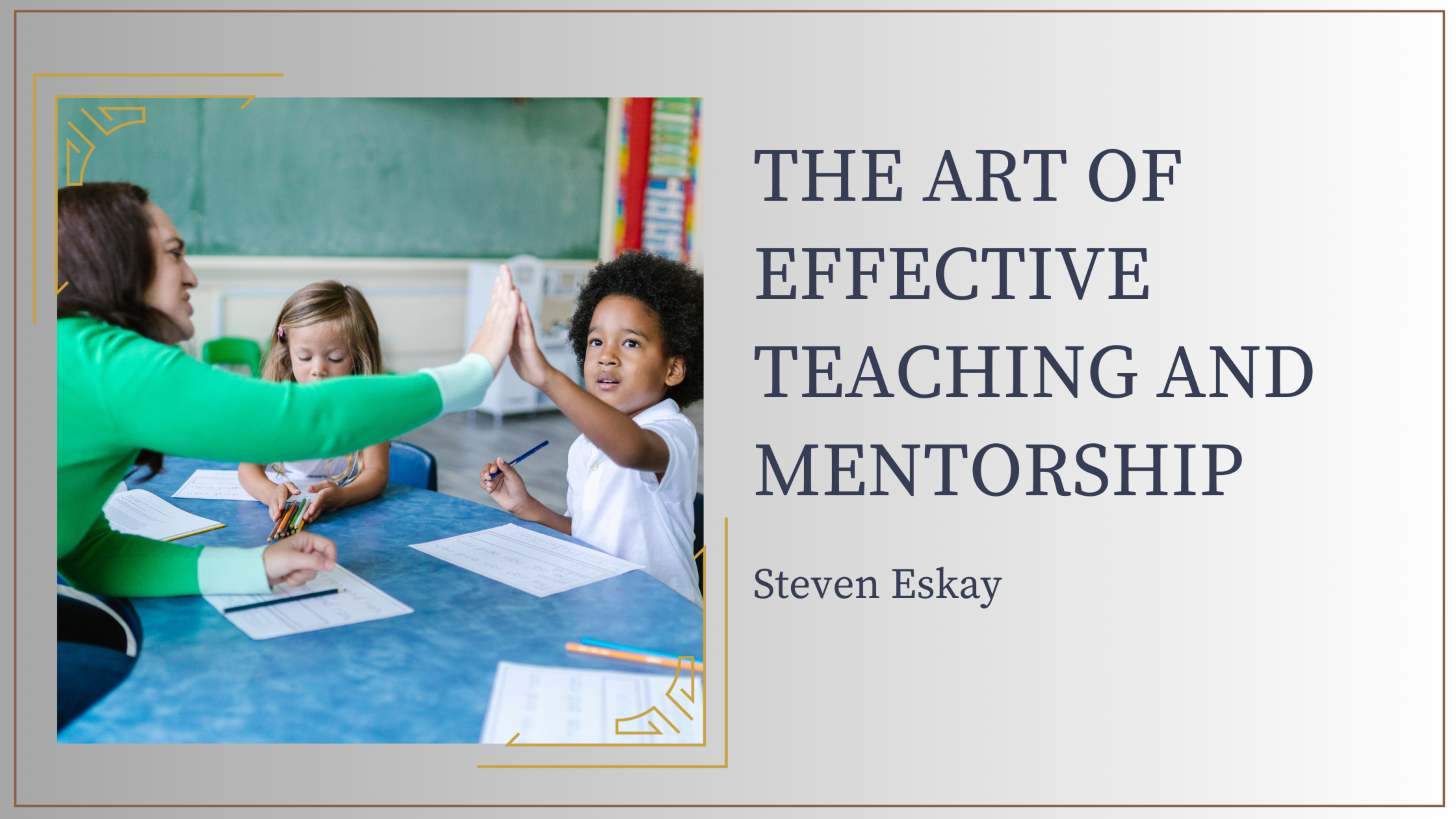Teaching and mentorship are essential pillars of education and personal development. They are crucial in shaping individuals’ lives and fostering their growth. Effective teaching and mentorship require knowledge, skills, empathy, and a genuine passion for helping others.
Creating a Supportive Environment
One of the foundations of effective teaching and mentorship is creating a supportive and inclusive environment. By fostering a safe space for learning and growth, teachers and mentors encourage students to express their thoughts, ask questions, and take risks. This nurturing environment enables individuals to develop skills and discover their full potential.
Building Relationships
Building strong relationships with students or mentees is vital for effective teaching and mentorship. By establishing trust and rapport, teachers and mentors can better understand their learners’ needs, strengths, and challenges. This connection allows for personalized guidance, tailored feedback, and a deeper understanding of how to motivate and inspire each individual.
Setting Clear Goals and Expectations
Effective teaching and mentorship involve setting clear goals and expectations. By clearly defining the learning objectives, teachers and mentors provide a roadmap for success. This clarity helps students and mentees stay focused and motivated, knowing what is expected of them and what they can achieve.
Adapting to Individual Learning Styles
Every student or mentee has unique learning styles and preferences. Effective teachers and mentors recognize these differences and adapt their approaches accordingly. They employ various instructional strategies, resources, and techniques to engage learners and cater to their needs. By embracing diverse learning styles, they ensure that all individuals have the opportunity to thrive.
Providing Constructive Feedback
Constructive feedback is a crucial component of effective teaching and mentorship. By providing specific, actionable, and timely feedback, teachers and mentors guide students and mentees toward improvement. This feedback should focus on strengths and areas for growth and offer practical suggestions for further development. The delivery of feedback should be supportive, and encouraging, and foster a growth mindset.
Encouraging Critical Thinking and Problem-Solving
Effective teaching and mentorship go beyond the transmission of knowledge. They encourage students and mentees to think critically, analyze information, and solve problems independently. By posing thought-provoking questions, encouraging exploration, and fostering a spirit of inquiry, teachers and mentors empower individuals to become independent thinkers and lifelong learners.
Effective teaching and mentorship are powerful catalysts for personal growth, knowledge acquisition, and skill development. The art of effective teaching and mentorship lies in inspiring, guiding, and empowering individuals on their educational and personal journeys.

